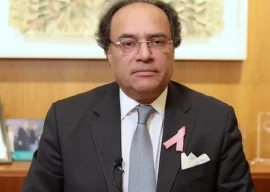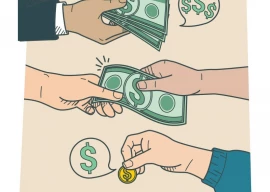
But hers is not an isolated case, with the number of medical practitioners resorting to drug abuse increasing, according to senior doctors.
“It is alarming to note drug addiction in health professionals since they are dealing with other lives,” said a senior doctor asking not to be named. “How can a health professional tend to a patient when he himself is high?” he said and urged for a need to screen all the health professionals for their blood and urine tests on regular basis.
The current system of drugs distribution in hospitals across the country makes it all too easy for doctors to get the medicines they want.
“All medicines are dispensed and written by the health professionals,” said the doctor.
Benazir Bhutto Hospital Institute of Psychiatry’s Registrar Dr Shahid Ali conceded that there has been an increase in the number of “health professionals getting into drugs.” He estimated that about 5% of all drug addicts are doctors.
“It is usually because of excessive workload, stress and most of all easy access,” he said. Dr Ali said health professionals are well aware of the medicines which could help them get rid of anxiety. Often, small doses result in long-term addiction, he added.
He said opioids, narcotics, painkillers, mood elevators, sedatives and sleeping pills are common among health professionals. Doctors mostly, from the anaesthesia department, take narcotics and painkillers but get away with it by taking in controlled quantities.
He said in the past few years, some cases were reported in hospitals in which health professionals were found unconscious in their rooms, particularly nurses and lower medical staff.
“The trend of taking sleeping pills is very common among young nurses as they find it is a quick fix for getting rid of stress. Doctors prefer IV injections to inject drugs such as avil and heroine,” he said.
Published in The Express Tribune, January 2nd, 2012.
COMMENTS (3)
Comments are moderated and generally will be posted if they are on-topic and not abusive.
For more information, please see our Comments FAQ


































1714129906-0/Clint-Eastwood-(1)1714129906-0-270x192.webp)






What excessive workload? It is nothing compared to the US & Canada. Speaking of Canada, strictly, the education is so expensive that most students are forced to take loans and work at least part-time. I have had a doctor tell me itnay to martay hain Pakistan main, do chaar aur sahi. They do not have much responsibility, no fear of license being cancelled, if they happen to have one in the first place!
Doctors who have foreign degrees are paid more which just further proves my point. The problem, as i see it, is not the workload but the conditions. My cousin in Pakistan, who just started her 1st year in DMC, she had to go to her roof to study for exams because of loadshedding. Her family, coming from a lower middle class background, cannot afford a generator. Then, there are the threats to their lives along with the violence in the city. Target killings, you name it.
I would never even put my trust in a drugged out person, wether he be a friend, a family member, or a far relative, let alone doctors....
Some tips for sleep Diazepam and like drugs donot help sleep unless sleep onset insomnia is due to anxiety. On the contrary classical benzos reduce deep sleep and increas light sleep. So please don't use those drugs for all sleep problems. The most common problem for sleep onset insomnia is Tea/coffee/ caffein containing cold drinks like coke Pepsi AND TEE VEE in bed room and watching it before sleeping. For good night sleep avoid all that.
Alcohol helps to sleep in first 1/3 of night and disrupts last 2/3 of sleep so that should be avoided as sleeping agent.